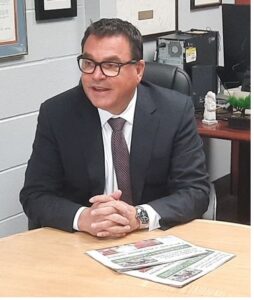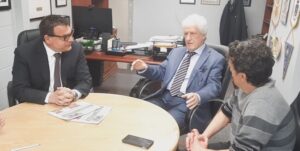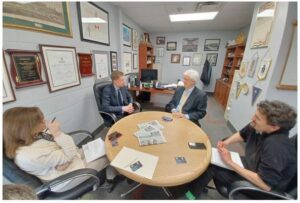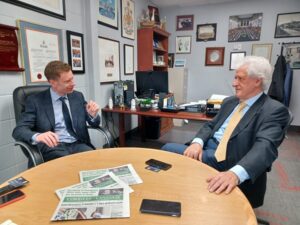TORONTO – “I candidati italiani sono esclusi da ogni dibattito e le loro proposte sono censurate dai media mainstream. Perché?”. L’intervista a Giorgio Mammoliti della redazione del Corriere Canadese inizia con un duro “J’accuse”. Il candidato sindaco di origine italiana ha parlato senza mezzi termini, accusando l’amministrazione John Tory e la burocrazia della City di Toronto di aver trasformato Toronto in “una Woke Gotham dove tutto è permesso tranne il diritto dei cittadini a vivere in sicurezza e serenità”. E promette: “Se sarò eletto sindaco, sradicherò questo movimento rimettendo le famiglie al centro dell’azione di governo. Ho la formazione e l’esperienza per farlo”…
Today, Corriere Canadese is publishing the third interview on the contending candidates seeking election as Mayor of Toronto. 102 individuals have registered with the Elections Office at City Hall. The Italian daily newspaper will not be able to give all of them the coverage they might like and proposes, but will not be limited to, interviewing interested candidates whom “the polls” suggest may garner at least 4% of the votes. →
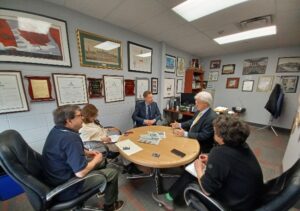
Hoje, publicamos a nossa segunda entrevista com um dos candidatos que disputam a eleição para presidente da Câmara de Toronto.
TORONTO – Segurança pública; combater o desperdício financeiro da Câmara; mais eficiência no mecanismo de governo da cidade; parar a construção de ciclovias, agora completamente fora de controle. Essas questões são o cerne do programa eleitoral de Anthony Furey. Ele é candidato a presidente da Câmara de Toronto nas próximas eleições municipais marcadas para 26 de junho. Jornalista experiente, colunista e comentarista político, Furey decidiu dar o salto e passar para o outro lado da cerca, aceitando o desafio do pós-Tory em Toronto.
TORONTO – Pubblica sicurezza, lotta agli sprechi a City Hall, efficienza nella macchina cittadina, stop alla costruzione ormai fuori controllo delle piste ciclabili. Sono queste le basi della piattaforma programmatica di Anthony Furey, candidato alla carica di sindaco alle prossime elezioni cittadine a Toronto in programma il prossimo 26 giugno. Con una lunga esperienza alle spalle da giornalista, editorialista e commentatore politico, Furey ha deciso di fare il grande salto e passare dall’altra parte della barricata, lanciando la sua sfida per il dopo Tory a Toronto. “Mi batterò per i cittadini di Toronto – ha detto Furey durante un’intervista esclusiva con il Corriere Canadese – Ci sono troppe voci che sono state escluse dal municipio negli ultimi anni: gente normale, piccole imprese, diverse comunità culturali, gruppi, e riporterò tutte queste voci a City Hall”… Read More in Corriere Canadese >>>
Today, Corriere Canadese is publishing its second interview on the contending candidates seeking election as Mayor of Toronto. As yesterday, 80 individuals have registered with the Elections Office at City Hall. Qualified candidates needed to provide at a minimum: 1. Proof of Canadian citizenship 2. Proof of a residence or business in Toronto 3. Endorsement from at least 25 other fellow citizens 4. $200.00.
When the registration process closes on May 12, Corriere Canadese will publish a list of those who still allow their name to stand. In the meantime, the Italian newspaper proposes, but will not be limited to, interviewing interested candidates whom “the polls” suggest may garner at least 4% of the votes. In the last election, only 29% of eligible voters cast a ballot.

